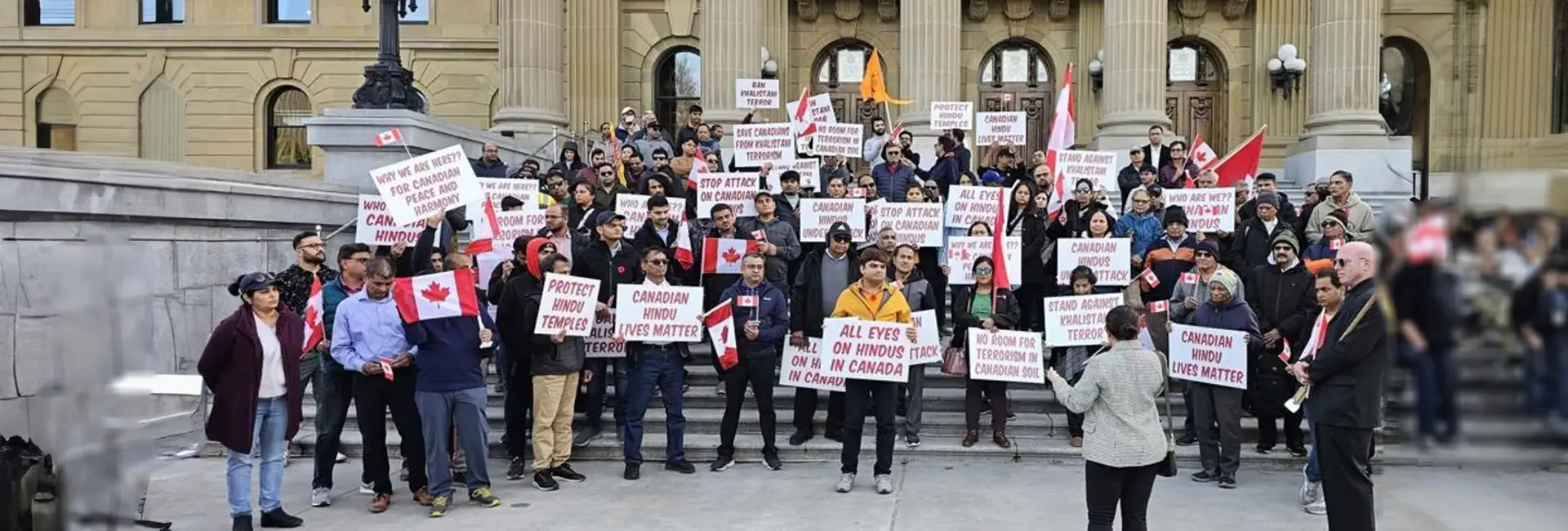The article is first appeared in Hindustan Times on Nov 9, 2024.
The Indian diaspora in Canada, a cornerstone of the country’s multicultural society, is grappling with a surge in violence and ideological discord. This thriving community of over 1.8 million people has historically been celebrated for its contributions to Canada’s economy and culture. However, recent developments, marked by acts of vandalism and targeted threats, have cast a shadow over its otherwise harmonious existence.
A significant driver of this tension lies in the Khalistan separatist movement, a divisive issue among Indian-origin Sikhs in Canada. For some, Khalistan represents a quest for Sikh autonomy, while others see it as a threat to unity and peace. These ideological rifts, often exacerbated by inflammatory social media campaigns, have led to a rise in hate crimes. Temples have been defaced with pro-Khalistan slogans, and individuals critical of separatism have faced harassment, creating an environment of fear and distrust within the community.
Diplomatic friction between India and Canada has further complicated matters. Disagreements over issues such as human rights, activism, and Canada’s perceived tolerance of extremist elements have strained relations. For instance, Canada’s vocal support for the Indian farmers’ protests was seen by some as interference in domestic affairs, igniting resentment in certain segments of the diaspora. The broader implications of these disputes trickle down, exacerbating divisions and creating fertile ground for extremism to thrive.
The impact extends beyond community safety, posing challenges for bilateral relations. Trade partnerships, educational exchanges, and immigration policies could suffer if the current tensions persist. Indian students, a vital demographic in Canadian universities, might reconsider studying in Canada due to safety concerns, potentially affecting the skilled labor pipeline that supports the Canadian economy.
Addressing this growing issue requires coordinated action at multiple levels. Governments must work collaboratively to de-escalate tensions, perhaps by enhancing dialogue on contentious topics while ensuring that hate crimes are met with strict enforcement of the law. Community leaders have a critical role in fostering mutual understanding and countering extremist narratives. Initiatives promoting dialogue and unity within the diaspora can serve as vital tools for reconciliation.
The Indian diaspora’s well-being is vital to both nations’ shared future. Safeguarding this community requires a commitment to fostering inclusion and respect while tackling the ideological and diplomatic challenges that threaten its harmony. By working together, India and Canada can ensure that their relationship remains robust and their multicultural ideals intact.
Read more: Hindustan Times
Find More Global Indian Top Reads

